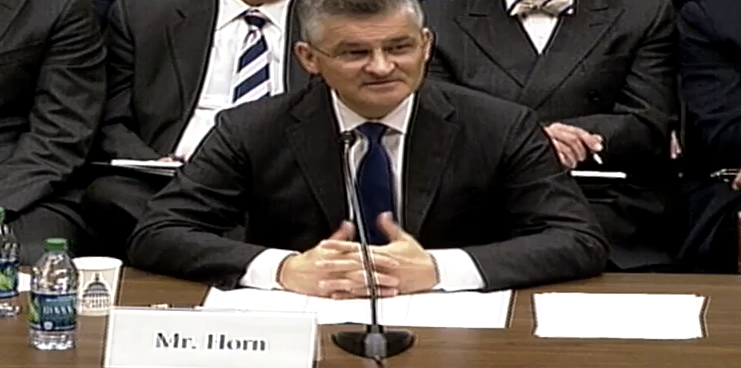VW Fix Could Take Two Years Or More; Dealer Profitability Is Main Focus

Michael Horn, CEO of Volkswagen’s U.S. operations, was grilled by lawmakers on Thursday regarding the company’s emissions scandal.
Executives for Volkswagen’s U.S. operations told lawmakers during a hearing on the company’s deceptive emission systems, that he’s confident the 500,000 so-called “clean diesel” vehicles secretly set up to cheat on emissions tests can be fixed with little disruption for owners.
Michael Horn, CEO of Volkswagen’s U.S. operations, told the Oversight & Investigations Subcommittee of the House Energy & Commerce Committee on Thursday that while the carmaker previously said it could fix the issue by the end of 2016, it would likely take much longer.
“The repairs will take five to 10 hours,” Horn said. “If you look at recall history in this market, then these actions can take one to two years minimum when the fix and parts are available.”
So exactly what will the remedy entail? That, Horn says, is still up for debate.
That’s because the affected U.S. vehicles cover three generations. About 430,000 cars are considered generation one, made as early as 2009. Another 90,000 are Passat vehicles in generation two, while about 70,000 model year 2015-16 cars are considered generation three.
Horn says the biggest hurdle for the company will be fixing cars included in the first generation, as those vehicles likely can’t be fixed with a simple software upgrade.
Those vehicles currently don’t include an after treatment system – such as a urea tank, which injects fluid into the exhaust pipeline in order to reduce the amount of NOx (nitrogen oxides) emitted into the environment.
The EPA estimates that VW’s affected vehicles spew NOx into the atmosphere at 40 times the allowable rates.
Horn says that the company is discussing several scenarios, one of which would include adding a urea tank or a specific catalytic converter to ensure the cars have systems to reduce harmful emissions.
The two later generations could be fixed by software updates in the firs half of 2016, while there currently isn’t a timeline for the first generation cars.
While it’s too early to say when the vehicles will be fixed, Horn say he’s confident that the remedy will not affect the cars’ promised fuel efficiency – something that likely drew customers to the vehicles to begin with.
“If we fix them, they will get the promised MPG, that’s my understanding,” Horn said. “Here might be one or two miles missing, but we will share that with the agency. If there’s a significant difference, then compensation would be discussed.”
As for VW dealers who have been prohibited from selling affected clean diesel vehicles since the scandal first broke in late Sept., Horn says the issue “troubles him the most.”
Diesel cars represent around a quarter of the business at the company’s 650 VW dealers and 350 Audi dealers.
Horn told the Committee that the carmaker provided dealers with “bonuses” of up to $1,500 per car, and wired money to give them flexibility to handle the crisis.
Another program providing a cash flow to dealers is expected to take place Friday, Horn said, noting that “dealer profitability is my main focus.”
Want more consumer news? Visit our parent organization, Consumer Reports, for the latest on scams, recalls, and other consumer issues.

